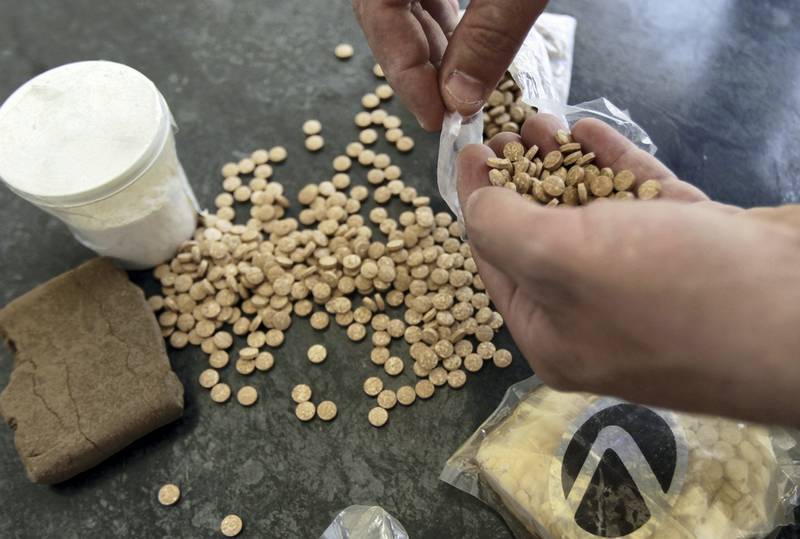
A person holding Captagon pills. (Credit: AFP)
Syrian authorities announced Tuesday that they have seized 24 kilograms of Captagon, which had been ground up and reconstituted to look like hummus bowls.
The amphetamine is usually produced in pill form, but smugglers crushed it and used the resulting paste to “mold pottery-like dishes coated with a brown adhesive,” the Interior Ministry said in a statement. One man was arrested in Damascus in connection with the thwarted trafficking attempt, the statement said, without specifying the destination of the shipment.
In recent years, Captagon traffickers have found ever more imaginative places in which to conceal the drug, including fake oranges, hollowed-out pomegranates and pitted olives. They also manufactured various ornamental objects or construction equipment containing cavities that can house the pills.
By manufacturing objects from the amphetamine powder itself, the traffickers appear to have been inspired by the drug cartels of Latin America. Cocaine, in its harder-to-detect liquid form, can be used to soak anything from plywood to T-shirts and then retrieved once it reaches its destination.
Most of world's Captagon is produced in Syria, spurring a multi-billion-dollar industry that has made the drug the country’s largest export by far. According to an AFP tally, roughly 250 million Captagon pills were seized worldwide in the first eight months of 2022.